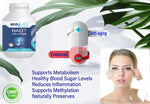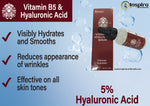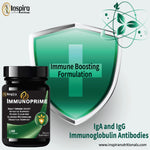
Niacinamide
Niacinamide is a water-soluble vitamin with multitasking bio-active abilities.
After Niacinamide is applied to the skin, it is converted into the coenzyme Nicotinamide Adenine Dinucleotide.
- Helps to visibly minimise enlarged pores
- Tightens lax or stretched out pores
- Improves uneven skin tone
- Softens fine lines and wrinkles
- Diminishes dullness and strengthens the surface
- Repairs the signs of past skin damage







